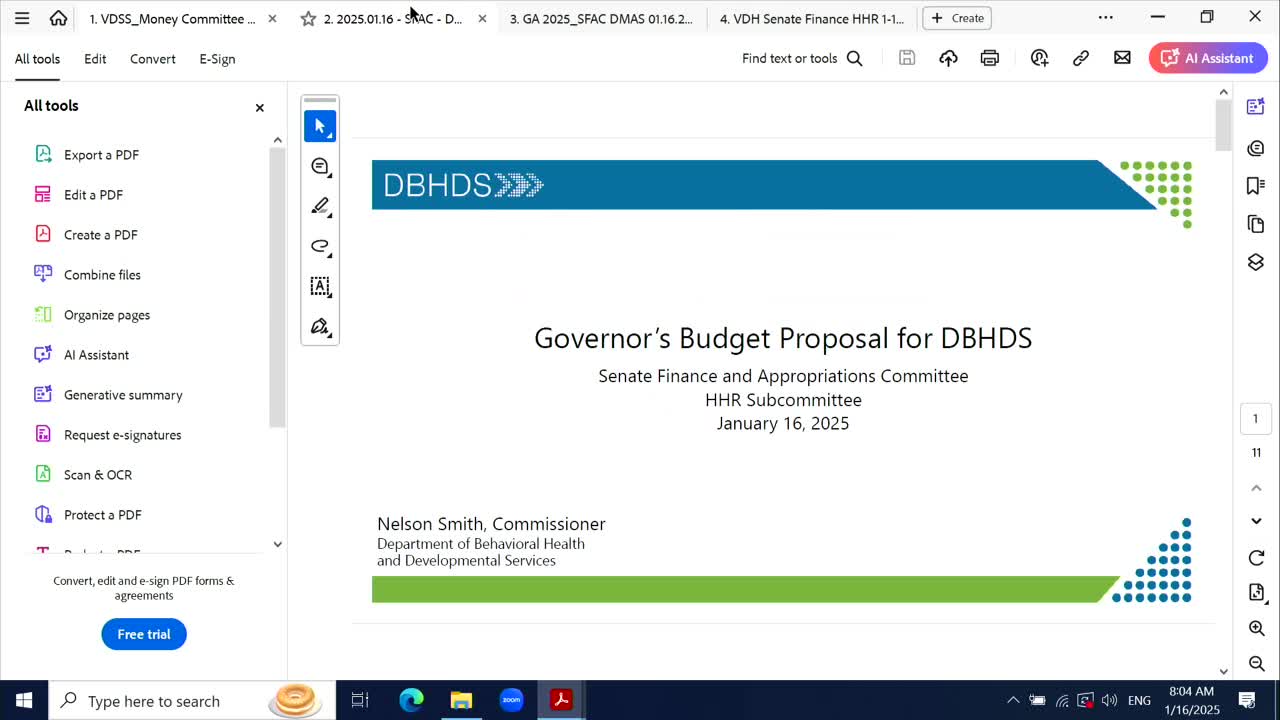DBHDS celebrates permanent injunction on developmental‑disabilities settlement, seeks funding for implementation and staffing
Get AI-powered insights, summaries, and transcripts
Subscribe
Summary
Department of Behavioral Health and Developmental Disabilities (DBHDS) told the subcommittee that a federal court approved a permanent injunction in the longstanding settlement and described remaining compliance requirements and agency budget asks to implement the injunction and expand crisis and community services.
Commissioner Smith of the Department of Behavioral Health and Developmental Disabilities and DBHDS chief deputy Braden Curtis briefed senators on the court’s entry of a permanent injunction concluding a 12‑year settlement process and outlined remaining obligations and budget requests tied to implementation.
“Without their pushing this forward, I don’t think we’d be where we are today,” Commissioner Smith said of advocates and staff, describing the permanent injunction entered by the U.S. District Court for the Eastern District of Virginia the day before the briefing.
Key facts from DBHDS briefing
- Permanent injunction and compliance indicators: Braden Curtis said the original 2012 settlement included 121 provisions and, after clarifications, 327 compliance indicators set in 2020. As of the most recent independent reviewer’s report, the Commonwealth had achieved compliance with about 88% of the indicators and had 33 indicators outstanding.
- Required actions and rate studies: The injunction sets expectations for specified services (crisis assessments, behavioral supports, day services, quality and risk management). For 11 named services, the injunction requires rate studies and directs the Commonwealth to make best efforts in the following two legislative sessions to obtain funding for rate changes recommended by those studies.
- Staffing and service authorization capacity: DBHDS requested additional staff for the service authorization team, citing more than 126,000 service‑authorization submissions in 2023 and an average workload per reviewer that DBHDS said is unsustainable; the request also funds regional support specialists to oversee waiver slot assignment committees and related functions.
- Behavioral health initiatives: Commissioner Smith and staff reiterated support for scaling special conservators of the peace (SCOP) programs, expanding crisis co‑responder programs, sustaining the Adult Psychiatric Access Line pilot (APAL) and continuing investments to eliminate priority wait lists for waiver services.
Why it matters: The permanent injunction focuses the Commonwealth’s remaining obligations on specific, measurable system improvements and creates a multi‑year schedule for rate studies and funding efforts. DBHDS emphasized the injunction’s seven‑year term (with possible earlier termination if sustained compliance is demonstrated) and said certain quality‑management and public‑reporting requirements will persist beyond termination.
